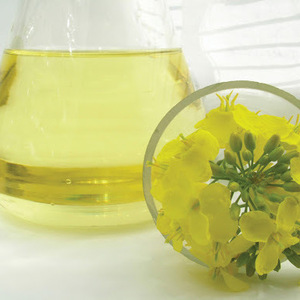EPA proposes to approve canola oil fuel pathways under RFS

April 12, 2022
BY Erin Krueger
The U.S. EPA on April 12 published a proposed rule approve Renewable Fuel Standard pathways for renewable diesel, jet fuel, heating oil, naphtha, and liquefied petroleum gas (LPG) produced from canola/rapeseed oil via a hydrotreating process.
EPA’s assessment proposes to find that these fuel pathways meet the lifecycle greenhouse gas (GHG) emission reduction threshold of 50 percent required to generate D4 biomass-based diesel and D5 advanced biofuel renewable identification numbers (RINs) under the RFS.
Based on its analysis, the EPA said its finding supports a determination that renewable diesel, jet fuel and heating oil produced canola oil are eligible for D4 biomass-based diesel RINs if they are produced through a hydrotreating process that does not co-process renewable biomass and petroleum, and for D5 advanced biofuel RINs if they are produced through a process that does co-process renewable biomass and petroleum. The EPA said its finding would also support a determination that naphtha and LPG production from canola oil through a hydrotreating process are eligible for D5 RINs.
Advertisement
A fuel pathway for the production of biodiesel and heating oil produced from canola oil via a transesterification process is already approved for the generation of D4 biomass-based diesel RINs.
The agency’s intention to complete the canola oil pathway rulemaking was announced in the White House Office of Management and Budget’s Fall 2021 Unified Agenda of Regulatory and Deregulatory Actions, published in December 2021. The proposed rule was delivered to the OMB for review in January 2022.
Advertisement
A 30-day public comment period on the proposed rule will open following its publication in the Federal Register. Additional information is available on the EPA’s website.
Clean Fuels Alliance America has spoken out in support of the proposed rule. “We applaud the Administration’s strategy to support growth for homegrown biofuels that are critical to expanding Americans’ options for affordable fuel in the short-term and to building real energy independence in the long-term,” said Kurt Kovarik, vice president of federal affairs at Clean Fuels. “We greatly appreciate EPA’s commitment to approving new RFS pathway petitions for renewable fuels that can provide greenhouse gas benefits as well as reduce reliance on foreign oil.”
Related Stories
At the University of Missouri, plant biochemist Jay Thelen is using arabidopsis as a powerful model to explore ways to boost oil production — an important step toward creating more sustainable, plant-based energy sources.
Iowa farmers have a new market opportunity for their 2025 soybean crop. Landus is expanding its Clean Fuel Regulation initiative, made possible by recent policy changes expected to increase Canada's demand for liquid biofuel.
Topsoe, a leading global provider of advanced technology and solutions for the energy transition, has been selected as the renewable diesel technology partner for CountryMark’s Mount Vernon, Indiana refinery.
Klobuchar, Moran introduce bipartisan legislation to support biorefineries, renewable chemicals, and biomanufacturing
Sens. Amy Klobuchar, D-Minn., and Jerry Moran, R-Kan., on July 31 announced the introduction of the Ag BIO Act. The legislation aims to update the USDA’s loan guarantee program to better support biorefining projects.
The U.S. exported 35,953.6 metric tons biodiesel and biodiesel blends of B30 or greater, according to data released by the USDA Foreign Agricultural Service on Aug. 5. Biodiesel imports were at 2,148.9 metric tons for the month.
Upcoming Events










